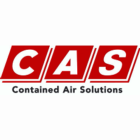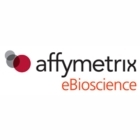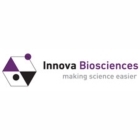Flow Cytometry Course 2016
Flow Cytometry Course 2016
Scientific Organisers: Dr Peter O'Toole, Mr Derek Davies and Dr Stephen Couzens
This course is aimed at both life science and clinical science fields, with the common fundamentals covered on day 1 and 2. The course then splits into life science and clinical orientated modules, from practical demonstrations to lectures highlighting not just the applications, but best practise as well.
The course is constructed as a set of three modules. You can elect to attend the Course from between two to five days, depending on the Modules selected.
The Modules consist of lectures interspersed with sessions in the laboratory. It is anticipated that instruments from three manufacturers will be available for practical work.
Provisional Programme - Basic course
Provisional Programme - Advanced Course
Flow Course 2016 - Clinical Application, (Advanced Course)
To view the Application in Cell Biology Module, please click here
Flow Course 2016 - Applications in Cell Biology (Advanced Course)
Speakers
Scientific Organisers
-

Dr Peter O'Toole
RMS Vice President
University of York
Peter heads the Imaging and Cytometry Labs within the Technology Facility at the University of York which includes an array of confocal microscopes, flow cytometers and electron microscopes. Peter gained his PhD in the Cell Biophysics Laboratory at the University of Essex and has been involved in many aspects of fluorescence imaging. Research is currently focused on both technology and method development of novel probes and imaging modalities.Peter has ongoing collaborations with many leading microscopy and cytometry companies and his group also provides research support to many academics and commercial organisations. Peter is also heavily involved with teaching microscopy and flow cytometry which includes organising and teaching on both the RMS Light Microscopy Summer School and the RMS Practical Flow Cytometry courses.
-

Mr Derek Davies
Flow Cytometry Section Vice Chair
The Francis Crick Institute
Derek is the National Science Technology Platform (STP) Training Lead at the Francis Crick Institute in London where his role is to develop Educational and Training courses to support Biomedical Research in the UK and beyond. He co-organises the section’s annual flow cytometry course at the University of York and is active in promotion of cytometry via focussed meetings and other courses. He is one of the principal organisers of the flowcytometryUK biennial meeting and also the Advances in Cytometry Meeting. Derek is particularly keen to promote cytometry education within the UK and beyond. -

Steve Couzens
University of Wales College of Medicine
Steve is the current head of the Immunophenotyping laboratory in the Department of Haematology at the University Hospital of Wales in Cardiff. Having started as a Biomedical Scientist, Steve undertook the STP Equivalence process in 2014 and is now registered as a Clinical Scientist with the HCPC. He passed the RCPath Part 2 examination in 2015. Steve is a member of a number of expert groups including the Multi-Colour Immunophenotyping Group (MIG) and organises the clinical module of the annual RMS International Flow Cytometry Course.
Further Information
Modules
For Module 1, no prior knowledge of flow cytometry is assumed. It will give you a firm grounding in the basics of flow cytometry. There is also a strong emphasis on practical application and four practical sessions are included.
The later Modules assume that you have some basic knowledge of flow cytometry (which can be obtained by taking Module 1).
Module 2, Clinical Applications, will include practical sessions and lectures on applications including immunophenotyping leukaemias, quality control, applications to transplantation and blood transfusion, apoptosis, AIDS and cytokines.
Module 3, Applications in Cell Biology, will include a study of the DNA histogram and the cell cycle, measuring cell cycle kinetics in cultures and in tumours in vivo, using labelling with bromodeoxyuridine, the measurement of cell cycle related proteins, cytokines, apoptosis (including practical work) microbiology.
Generally the instruments used are BD Canto II and Beckman Coulter FC500.
Course Fees
Full Course and accommodation
Standard registration fee £1,475
Member registration fee £1,335
Basic Course and accommodation
Standard registration fee £735
Member registration fee £665
Advanced Course and accommodation
Standard registration fee £1,095
Member registration fee £995
Course Structure
There are 3 registration options available for the Flow Cytometry Course
The Full course – Five days, Monday 12 September to Friday 16 September
The Basic course – Two days, Monday 12 September and Tuesday 13 September
The Advanced course – Three days, Wednesday 14 September to Friday 16 September
Each registration option has an accompanying Accommodation Package. Please see below for a breakdown of each accommodation package.
For the Full course and Advanced course, delegates are asked to make a selection between Clinical Application and Applications in Cell Biology.
Venue for the course
The Flow Cytometry Course takes place within the Biology Department of the University of York. The Biology department is situated on Wentworth Way. The full address is Department of Biology, University of York, Wentworth Way, York, YO10 5DD. For more information on the University, please visit the www.york.ac.uk.
Venue and accommodation
If you are flying to the UK, we recommend that you travel to Manchester International Airport and then travel by train to York. This is further, but is more convenient than travelling from Leeds Airport.
York Railway Station is the closest station to the University of York Campus, where both the course venue and accommodation are located. The short taxi ride to the campus should not cost more than £10.
We do not recommend parking on York Campus, unless absolutely necessary, as spaces are very limited due to ongoing building works.
Accommodation package
The Full course accommodation package: This package includes 5 nights’ en-suite, bed and breakfast accommodation in halls on the University of York Campus. Delegates will be able to check-in on Sunday 11 September and will be departing on Friday 16 September.
The Basic course accommodation package: The package includes 2 nights’ en-suite, bed and breakfast accommodation in halls on the University of York Campus. Delegates will be able to check-in on Sunday 11 September and will be departing on Tuesday 13 September.
The Advanced course accommodation package: The package includes 3 nights’ en-suite, bed and breakfast accommodation in halls on the University of York Campus. Delegates will be able to check-in on Tuesday 13 September and will be departing on Friday 16 September.
Meals
Breakfast will be provided as part of the accommodation package, including on the morning of check out. This will be provided on campus.
All buffet lunches, tea / coffee and biscuits are included in your registration fee. The evening meals will be held in the following locations.
- Monday’s evening meal will be at Cosmo Authentic World Kitchen followed by a walking tour of York. (All Full Basic course delegates)
- Tuesday’s evening meal will be on campus. (Full and basic course delegates with accommodation package only.)
- Wednesday’s evening meal will be on campus. (Full and advanced course delegates with accommodation package only.)
- Thursday’s evening meal will be held at Ask Italian restaurant in York City Centre (All Full and Advanced course delegates).
Please note that Tuesday and Wednesday have meals provided but only for delegates who have the accomdation package.
Registration
For the Full and Basic course registration will be take place on Monday morning from 09.00 – 09.30 at the Department of Biology main reception. Registration for Advanced course on Wednesday morning will be 09.00 to 09.15.
Dietary and Access requirements
The RMS is committed to our delegate’s health and wellbeing. Therefore if you have any dietary or access requirements please contact Karina Lang.
CPD Points and certificates of attendance
In previous years this course has been awarded IBMS Continuing Professional Development (CPD) Points. You will be able to collect a CPD Certifcate and also a certificate of attendance at the course should you require them.
Sponsors
-

BD Biosciences
BD Biosciences is a world leader in bringing innovative diagnostic and research tools to life science researchers, clinical researchers, laboratory professionals and clinicians who are involved in basic research, drug discovery and development, biopharmaceutical production and disease management. The BD Biosciences segment is focused on continually advancing the science and applications associated with cellular analysis.
Find out more about BD Biosciences
www.bdbiosciences.com -

Thermo Fisher Scientific
Thermo Fisher Scientific, the world leader in serving science, supplies innovative solutions for microscopy and microanalysis. We provide SEMs, TEMs, microCTs and DualBeam™ FIB-SEMs combined with advanced software suites to take customers from questions to usable data by combining high-resolution imaging with physical, elemental, chemical, and electrical analysis across scales and modes—through the broadest sample types.









